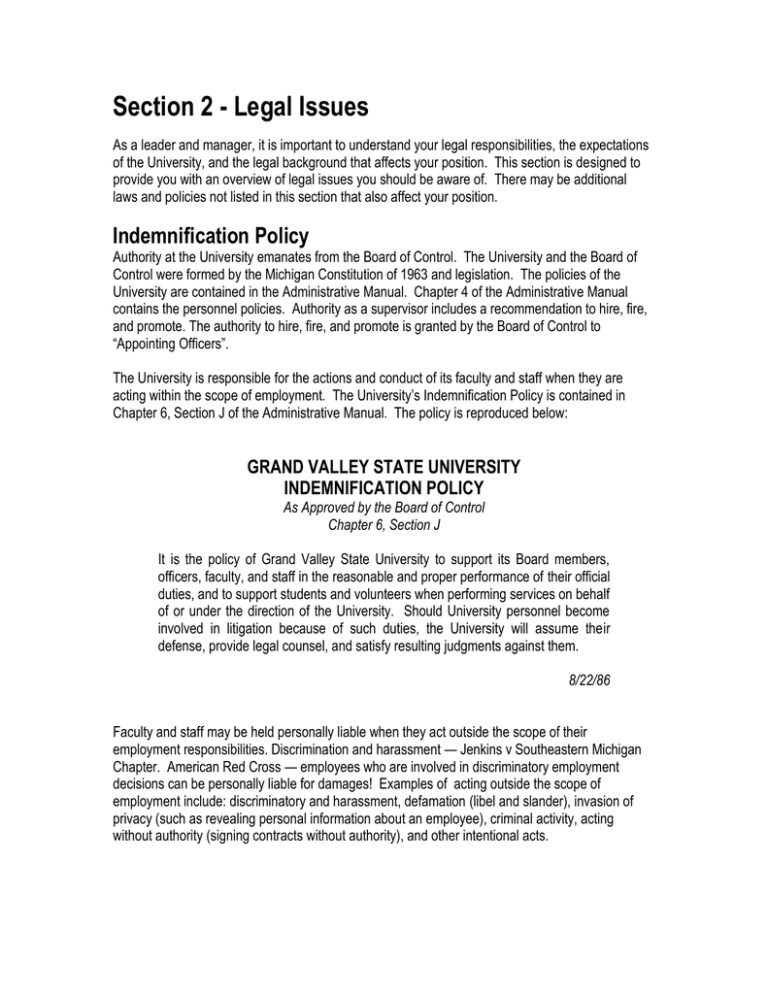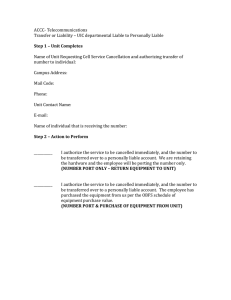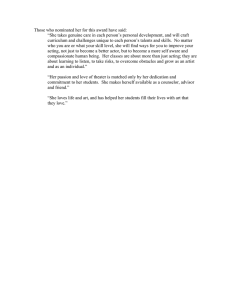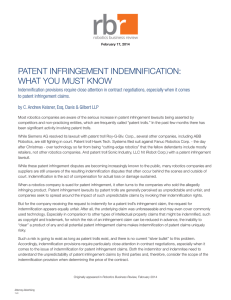Section 2 - Legal Issues
advertisement

Section 2 - Legal Issues As a leader and manager, it is important to understand your legal responsibilities, the expectations of the University, and the legal background that affects your position. This section is designed to provide you with an overview of legal issues you should be aware of. There may be additional laws and policies not listed in this section that also affect your position. Indemnification Policy Authority at the University emanates from the Board of Control. The University and the Board of Control were formed by the Michigan Constitution of 1963 and legislation. The policies of the University are contained in the Administrative Manual. Chapter 4 of the Administrative Manual contains the personnel policies. Authority as a supervisor includes a recommendation to hire, fire, and promote. The authority to hire, fire, and promote is granted by the Board of Control to “Appointing Officers”. The University is responsible for the actions and conduct of its faculty and staff when they are acting within the scope of employment. The University’s Indemnification Policy is contained in Chapter 6, Section J of the Administrative Manual. The policy is reproduced below: GRAND VALLEY STATE UNIVERSITY INDEMNIFICATION POLICY As Approved by the Board of Control Chapter 6, Section J It is the policy of Grand Valley State University to support its Board members, officers, faculty, and staff in the reasonable and proper performance of their official duties, and to support students and volunteers when performing services on behalf of or under the direction of the University. Should University personnel become involved in litigation because of such duties, the University will assume their defense, provide legal counsel, and satisfy resulting judgments against them. 8/22/86 Faculty and staff may be held personally liable when they act outside the scope of their employment responsibilities. Discrimination and harassment — Jenkins v Southeastern Michigan Chapter. American Red Cross — employees who are involved in discriminatory employment decisions can be personally liable for damages! Examples of acting outside the scope of employment include: discriminatory and harassment, defamation (libel and slander), invasion of privacy (such as revealing personal information about an employee), criminal activity, acting without authority (signing contracts without authority), and other intentional acts.


